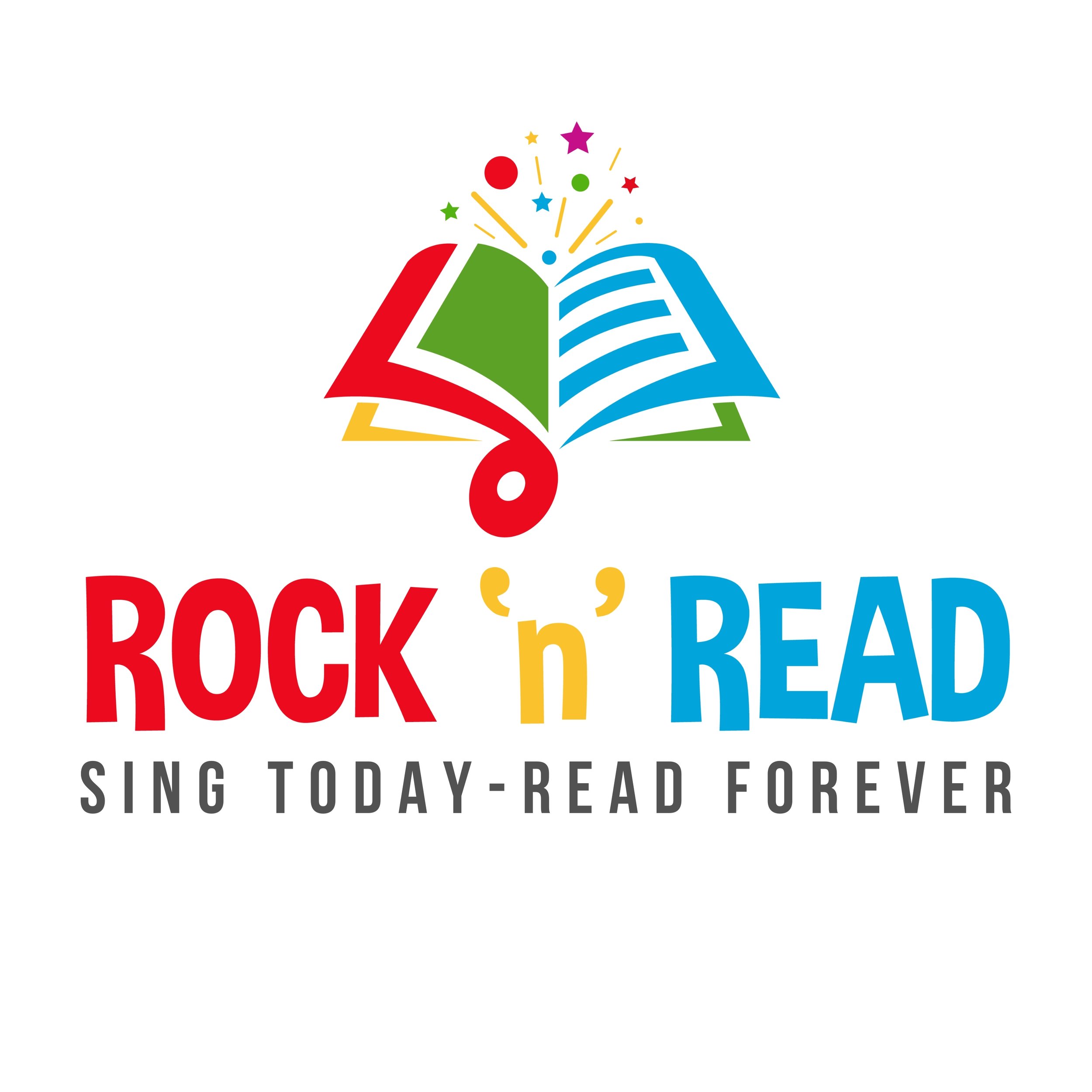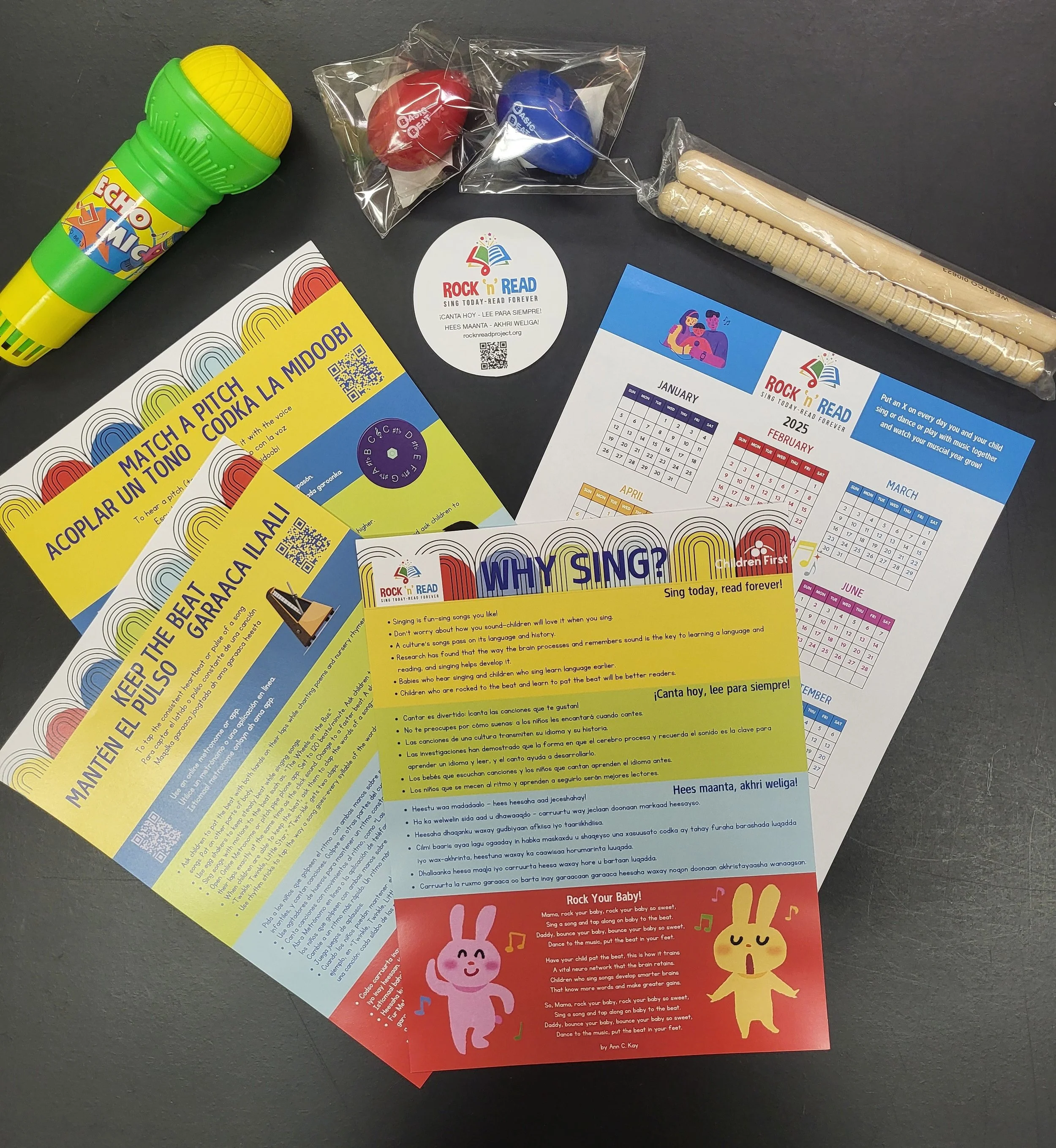Brain Train Activities
For babies, toddlers, and preschoolers
How to Prepare Brains for Reading
Don’t worry about how you sound…you are your child’s rock star!
Sing your day away!
Chant rhymes and sing songs. Sing songs you love. Repeat them often and children will join in.
Use a sing-songy voice instead of speaking—children will pay more attention!
Sing the same greeting song to children every day.
Sing a lullaby before children go to sleep.
Ask children to sing into a toy echo microphone and hear the echo sound.
Keep the beat
Ask children to pat the beat with both hands on their laps while chanting poems and nursery rhymes, and singing songs. Pat on other parts of body.
Sing songs with motions to the beat such as, "The Wheels on the Bus."
Open a metronome app or access online: such as, Metronome (Android) or TrueMetronome Lite (Apple), or Online Metronome. Set to 120 beats/minute. Ask children to pat with both hands on their laps exactly at the same time as the click sound.
When children are able to keep the beat, ask them to clap the words of a song—every syllable. For example, in Twinkle, Twinkle, Little Star, "Twin-kle" gets two claps. Use rhythm sticks to tap the rhythm of a song —every syllable of the words.
Match pitch
Note: most children can only produce sounds from middle C on up.
Slide the voice up and down like a siren. Ask children to echo.
Sing two different pitches—one high and one low. Ask children which one was higher.
Sing and hold a pitch on "oo" and ask children to match. Ask a child to sing and hold a pitch on “oo” and you try to match it.
Use Perfect Pitch by Swift Scales (for Android or Apple), or Online Tone Generator to play a pitch, match it on "oo," and ask children to match.
Sing in tune
Sing a familiar song with children, trying to match their pitches.
Sing a familiar song, but stop before the last word of each phrase, such as "Twinkle, twinkle, little _____." Children fill in the word.
Trade off singing each phrase of a song, first the adult, then children.
Sing "yoo-hoo" or "cuck-oo" (the sound of a cuckoo clock). Children echo.
Record children’s singing with a phone and have them listen to it.
Play singing games
Starting with babies, sing folk songs, such as “The Wheels on the Bus,” and encourage them to do motions to the beat. Sing fingerplays, such as “Itsy Bitsy Spider” and “Baby Shark.” With older ones, play hand-clapping games, such as “Who Took the Cookie,” and “Miss Mary Mack.”
Sing-read song tales
Seeing words of a song that a child already knows is a step to reading.
There are hundreds of these books in many languages:
15 Multicultural children’s books based on famous songs
Bookroom picks
Public library suggestions
We created this music kit for a project with families and their young children. Click the blue button to get the activity cards.
Basic Skills
Patting a steady beat
See more videos of children doing basic skills.
Use this form to assess whether your child has mastered the basic music pre-reading skills.
help for older struggling readers
Same-Language Subtitling (SLS)
Fun, singing-based software program that is used as an intervention for struggling readers.
Research has found that children make one year gain in reading (avg.) after 14 hours of usage.
Can be used at home, school, or community organization.









